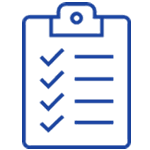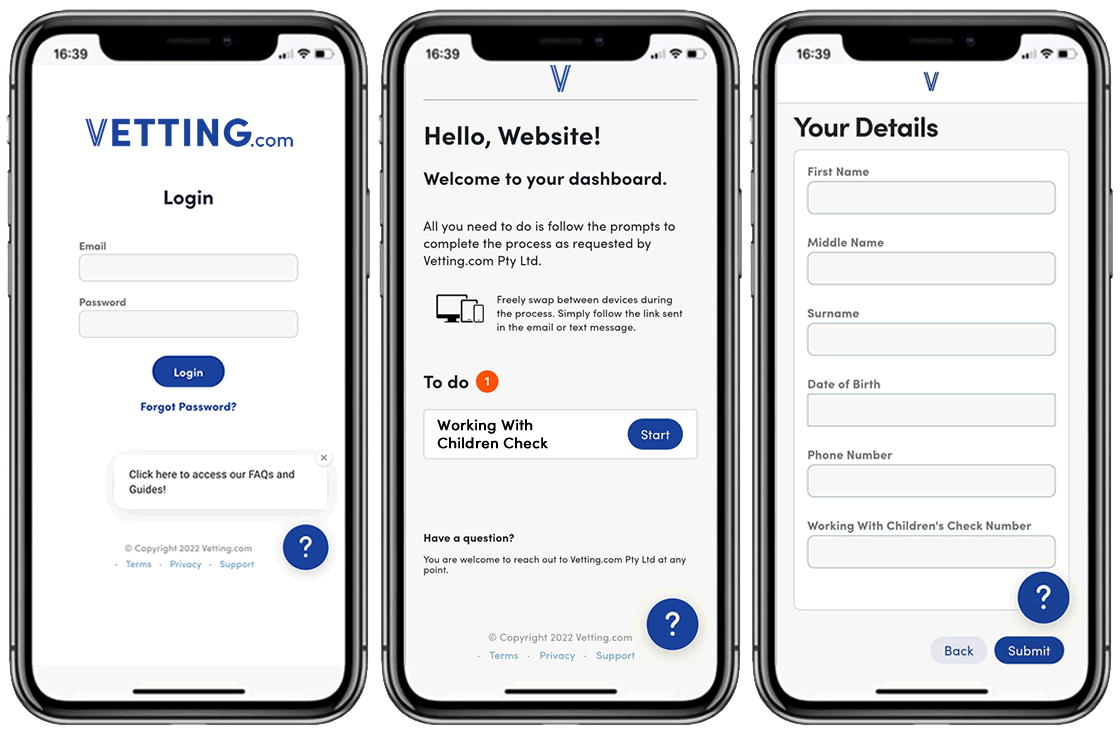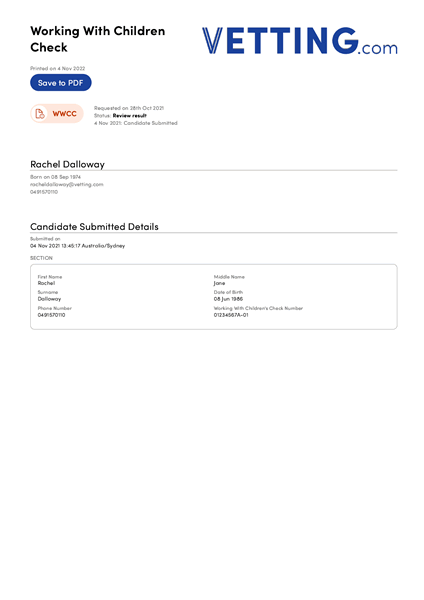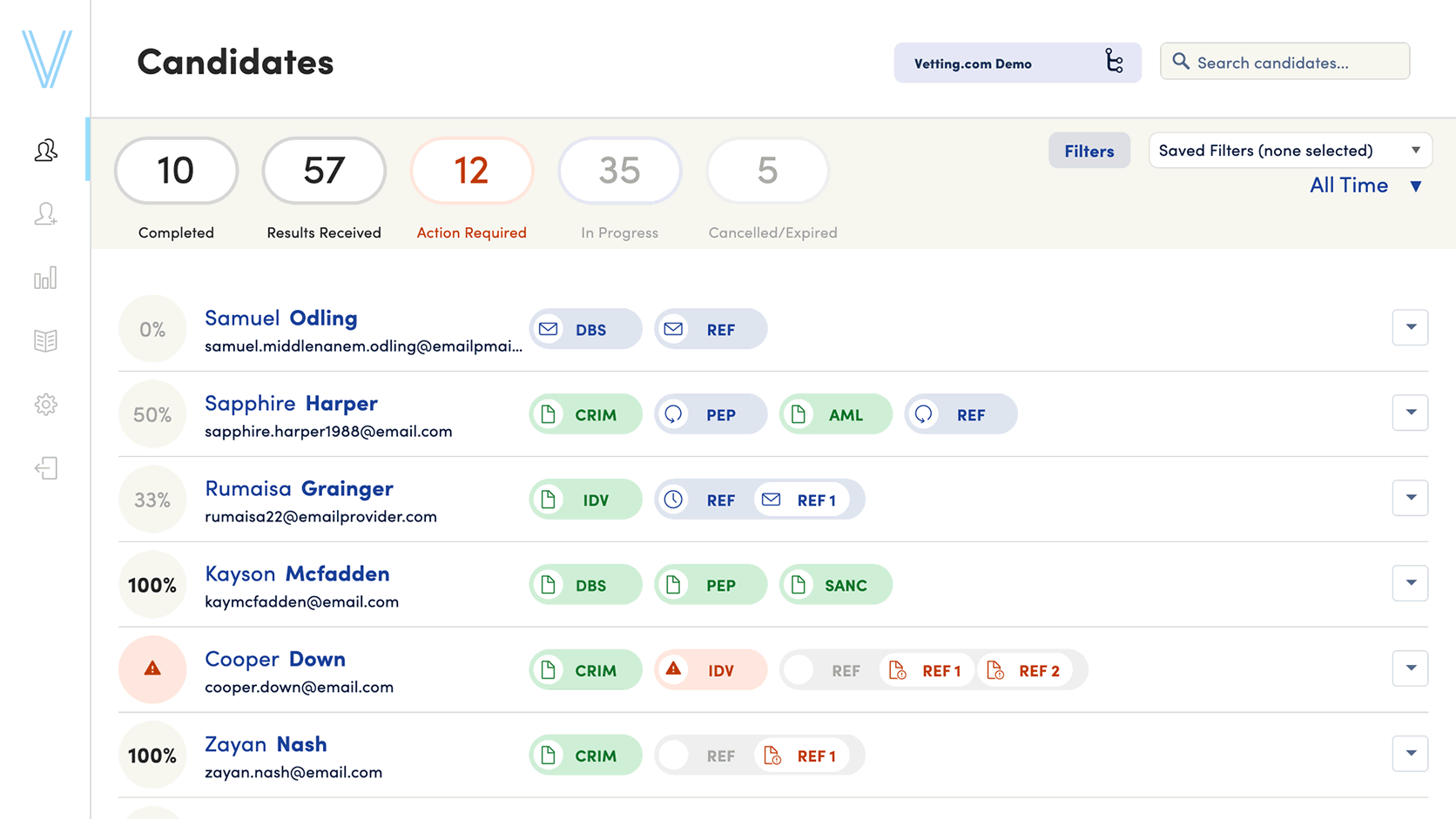The documentation to verify a Working with Children Registration varies by state. Please find the required information relating to each state below.
New South Wales:- Name
- Phone number
- DOB
- WWC number OR Application number
- Name
- Card number OR Application number
- Name
- Card number OR Application number
- Name
- Unique ID/Screening reference number
- Name
- DOB OR Clearance number
- Name
- Notice OR Card number
- Name
- Application number, Card number OR NDIS Worker screening ID
- Name
- DOB
- Working With Vulnerable People Registration details (number and expiry)







